Latest News
Webutuck drama program returns with ‘Back to the ’80s’
Nathan Miller
Feb 23, 2026
Webutuck music and chorus teacher Kaylee Kelsey holds a meting with cast members for this year's production of "Back to the '80s" before full dress rehearsal on Saturday, Feb. 21, in the Webutuck High School auditorium. The play will debut on Thursday, Feb. 26, at 5 p.m., with additional performances to follow Friday, Feb. 27, and Saturday, Feb. 28, at 7 p.m. and Sunday, March 1, at 2 p.m.
Photo by Nathan Miller
AMENIA — Webutuck's drama program is returning for the second year with a production of "Back to the '80s."
A cast consisting of mostly middle schoolers and one freshman will debut the throwback comedy in Webutuck's auditorium at 5 p.m. on Thursday, Feb. 26. Additional performances will follow at 7 p.m. on Friday, Feb. 27, and Saturday, Feb. 28, with a matinee at 2 p.m. on Sunday, March 1.
"Back to the '80s" is a nostalgic comedy written by Dean O'Carroll following sixteen-year-old Mary Fitzfry, who gets transported back in time to 1985 when a time machine malfunctions — echoing the plot of 1985 blockbuster "Back to the Future."
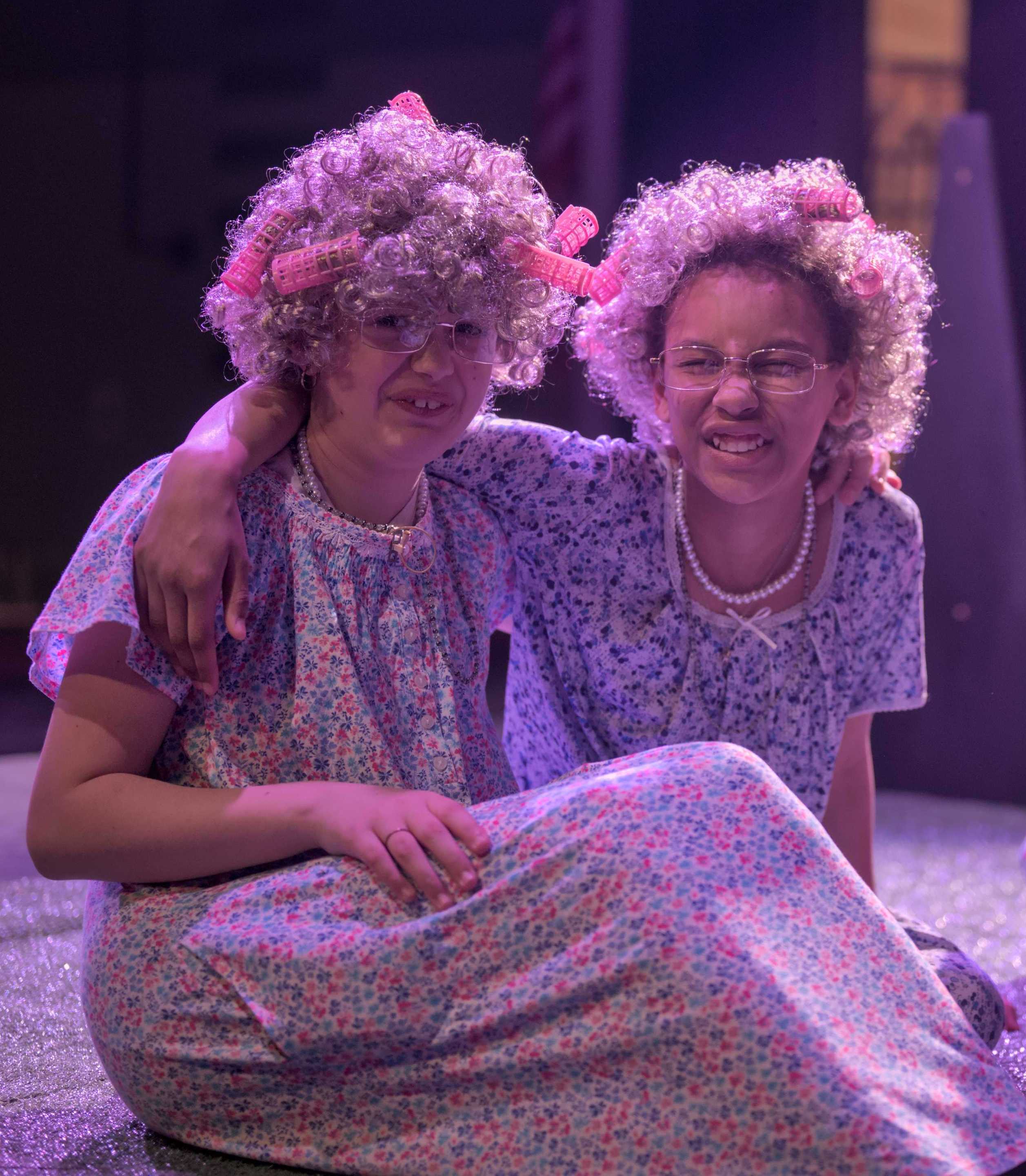
What follows is a reference-filled jaunt through '80s pop culture as the teen, played by Webutuck student Fiona Crow, tries to repair the time machine and return to the present day without doing anything that could change the future.
At dress rehearsal on Saturday, Feb. 21, performers buzzed with excitement as they donned their neon-splashed costumes and high-top sneakers. Some of the students had been preparing for the performance by taking in '80s movies and media.
"We watched 'Big' last night," Webutuck freshman Nolan Howard said at dress rehearsal, adding that he thought the 1988 Tom Hanks feature was a good movie.
Webutuck music and chorus teacher Kaylee Kelsey leads the production, marking her second year as the school play's director and producer. She said Webutuck hadn't had a school play in years before she rebooted the program last year.
She said the timing of the program — with rehearsals starting in late September and the performance in the first week of March — created challenges in getting high school students involved.
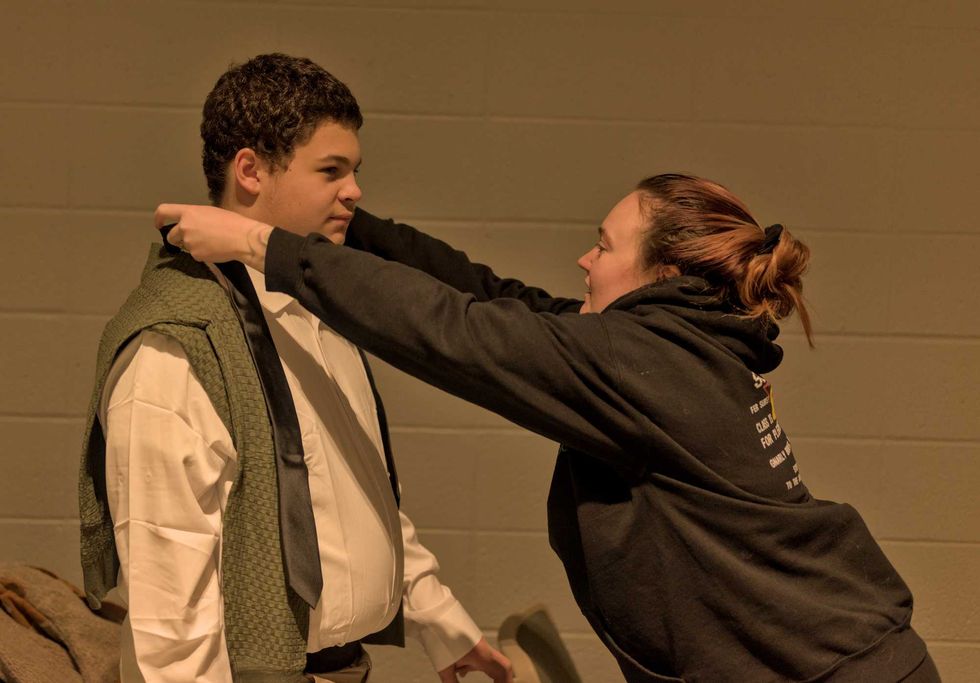
"It's a winter play, it's not really a spring play," Kelsey said, adding that the winter sports season, academic responsibilities and a lack of familiarity with performance contribute to the lower numbers among high school students.
So Kelsey, like last year, brought middle school students into the fold. She said at least 10 performers returned after last year's production of "Clue," bringing along friends and other inspired classmates to build a cast of 26 for this year's production.
The younger cast has its own challenges, however. "It is a bit more of a scramble," Kelsey said, but the middle school students make up for a lack of organization with excitement.
Keep ReadingShow less
Oblong bookseller retires after 42 years on Main Street
Aly Morrissey
Feb 18, 2026
Longtime Oblong Books employee Lisa Wright in the Millerton store on Main Street. Wright will be retiring from her position on Monday, Feb. 23, after more than 40 years at the shop.
Photo by Aly Morrissey
MILLERTON — Longtime bookseller Lisa Wright has announced her retirement from Millerton’s Oblong Books, marking the end of a 42-year run that made her the longest-serving employee of the 50-year-old shop. She was among Oblong’s first booksellers and said her departure is bittersweet. “I decided I wanted to walk away while I still loved it,” she said.
Though she is stepping away from daily life behind the counter, Wright won’t be disappearing entirely from the store. Even after her final day on Monday, Feb. 23, she plans to continue writing her signature “shelf-talkers” — handwritten notes taped to the shelves to help browsers discover new books.
Wright’s relationship with Oblong began, fittingly, as a customer. She spent hours perusing the shelves and listening to music when the store was still located across the street from its current Main Street home. As business picked up and founders Holly Nelson and Dick Hermans decided to open on Sundays, Wright was offered a job.
“It started very haphazardly,” she recalled. “Needless to say, it was a lot smaller back then.”
Over the decades, Wright helped shepherd Oblong Books through many changes — including its physical move across the street. She remembers everyone pitching in to help, including a handful of their regular customers.
“It was fun, actually,” Wright said. “Hard work, but fun.”
In those early days, records were more popular than the books, and music was always playing in the store. Asked who chose the records, Wright didn’t skip a beat. “Dick,” she said with a smile.
Hermans, a longtime music aficionado, even hosted a radio show during those years — and he continues to share his love of music on the airwaves today.
Back then, most of the customers were regulars, Wright said, and tourism in Millerton hadn’t yet picked up. “We knew everybody,” she said, noting that times have changed. Now, some longtime customers steer clear of weekends to avoid the influx of visitors.
Through it all, Wright’s love for books stems from their ability to transport her to other worlds. She was first drawn to the fantasy genre, but her taste has evolved over the years to include nonfiction — especially narrative nonfiction because she loves a good story — and science. Ultimately, she said, the subject doesn’t matter as long as the author is excited about the topic.
“Those are always the best books,” she said. “If you can find one where the author is really excited about their subject, it’s wonderful, because you get caught up.”
While Wright said she couldn’t possibly name all of her favorite books, some recent recommendations include “Lessons in Chemistry” by Bonnie Garmus, “The Correspondent” by Virginia Evans and “Someone You Can Build a Nest In” by John Wiswell — all debut authors. The latter, she said, was particularly appealing because of its unique premise.
“It’s the strangest love story between a person and a monster,” she said.
She also always recommends “The Murderbot Diaries,” a series by Martha Wells.
“They are so funny and so touching, and the main character, who is a construct, is a little bit human, but not very much,” said Wright. “But he has overridden his governor module, so he doesn’t have to take orders from anyone anymore. And he’s having trouble understanding human beings.”
Wright estimates she reads about 100 books a year and believes the more you read, the faster you read. She also holds a firm — and often polarizing — rule.
“If you’re not in love with a book, stop reading it,” Wright said. “Reading should be fun and it should transport you. Don’t waste your time reading something you don’t like.”
She’s also a believer in the cognitive benefits of reading. “Your brain is imagining what you’re reading,” Wright said. “There’s nothing else that has that same effect.”
What she loves most, though, is sharing books with other people.
“It’s such a good feeling when they come back and say, ‘Oh, that book you recommended was so good.’”
For the foreseeable future, shoppers can still expect to find Wright’s legendary shelf-talkers at Oblong Books, guiding readers to their next story.
In a letter to the community, Oblong Books co-owner Suzanna Hermans said, “Lisa has been such an important part of my life, and of the lives of our booksellers over all these years - it’s hard to imagine our store without her.”
Keep ReadingShow less

Want more of our stories on Google? Click here to make us a Preferred Source.
Planning Board identifies potential major impacts of workforce housing plan
Leila Hawken
Feb 18, 2026
The proposed site of Hudson River Housing’s Cascade Creek workforce housing subdivision on Route 44.
Photo by Nathan Miller
Correction: A previous version of this article mistakenly reported the Planning Board voted to require a full environmental impact analysis of the proposed 28-unit workforce housing subdivision in Amenia. In fact, the board will further discuss the issue at its March meeting. On Wednesday, Feb. 11, board members voted 4-2 to prepare a draft positive declaration under the State Environmental Quality Review Act, which could delay the subdivision six to twelve months if board members adopt it.
AMENIA — The Planning Board signaled support on Wednesday, Feb. 11, for a full environmental impact review of the proposed 28-unit Cascade Creek workforce housing subdivision.
Board members voted 4-2 to prepare a draft statement to be discussed further in March, identifying concerns over impacts to local schools, water supply and visual impacts.
Under the New York State Environmental Quality Review Act, the statement — known as a positive declaration — means the board determined the project may have significant environmental impacts that require further study before it can proceed.
Developer Hudson River Housing, a Poughkeepsie-based nonprofit, would be required to prepare a full environmental impact statement for the subdivision planned on 24.13 acres across Route 44/Route 22 from Freshtown Plaza if board members vote to adopt the draft.
“The positive declaration is a procedural vote to set the board on a path to create a full impact analysis, including completing a scoping process,” Planning Board attorney Victoria Polidoro said.
Board members identified four areas of potential impact, reflecting concerns raised by residents: a possible rise in local school enrollment, adequacy of water supply for firefighting, increased traffic, and visual impacts that may be inconsistent with community character.
The developers of the Cascade Creek subdivision have appeared before the Planning Board for more than a year, drawing a mixed reception from board members and the public.
Detailed site plans cannot be prepared until the environmental review process is completed.
Residents provided input most recently during an informal public comment session at a Planning Board meeting on Wednesday, Jan. 14, expressing concerns over impacts on groundwater supply and other issues. George Bistransin presented a petition opposing the development with 204 signatures.
Project Engineer Peter Sander of Rennia Engineering reported that all concerns from the January meeting had been considered and responded to in reports to the planning board. Changes had been incorporated into the plans based on comments voiced, he said.
Cascade Creek is classified as a conservation subdivision. Sander said 59% of the acreage would be set aside for open space.
Sander said that since November, he has submitted additional data on construction phasing and timelines, completed a second traffic study in addition to one conducted in September 2025, and met with fire officials to incorporate their suggestions, including increased spacing between homes and the use of fire-retardant materials.
“We feel we have provided sufficient information,” Sander said, asking that steps be taken to complete requirements for the conservation analysis phase, allowing the project to reach the design process when actual plans can be presented.
Sander projected that an estimated seven to 15 students might be added to the Webutuck School District as a result of the development, noting that he had difficulty in receiving a response to questions about Webutuck School District’s capacity for students.
Board members discussed how best to estimate potential enrollment increases and the difficulty of predicting how many school-age children might live in the homes.
“We are not school district predictors,” said Mary Linge, HRH vice-president for Real Estate Development, reasoning that other sources should be able to provide reliable data.
Adequacy of water supply to combat a home fire was a focus of board discussion, particularly a suggestion from local fire officials that a 180,000-gallon water tank would be needed for the purpose. Planning Board members debated how the matter could be resolved through compromise and the difficulty of reaching a decision without expertise in water supply standards.
“We’re just here for SEQRA impact now,” Sander said. “We’ve responded to fire department and citizen input. We’re going to work with you. We need your guidance.”
Planning Board member Nina Peek said the board should continue the process and move toward a public hearing once the impact statement is prepared.
Keep ReadingShow less
Public debate on North East’s zoning rewrite to continue March 20
Nathan Miller
Feb 18, 2026
The Town of North East’s Boulevard District — a stretch of Route 44 between Millerton and the New York State border — is the town’s largest commercial zone. The proposed zoning rewrite would allow mixed-use buildings with residential apartments above ground-floor retail.
Photo by Aly Morrisey
MILLERTON — Town Board members voted last week to continue the public hearing on the town’s proposed zoning overhaul, setting a new date of Friday, March 20, at 7 p.m.
The North East Town Board also scheduled a special workshop for Tuesday, March 3, at 5 p.m. to review public comments and concerns raised during February hearings, including calls for clearer explanations of the new code’s intent and requests to expand permitted uses in commercial districts. Board members set those dates at their regular meeting Thursday, Feb. 12, which included a public hearing on the zoning rewrite along with routine department reports.
North East’s 181-page draft zoning code would update much of the town’s existing regulations, with a particular focus on revising standards and approval processes in commercial districts to encourage development and expand housing opportunities. Public comment on the new zoning code during the hearing was brief. Just two people — North East residents Rob Cooper and Kathy Chow — offered comments at the third public hearing on the zoning overhaul since the Town Board opened debate on the draft on Jan. 8.
Cooper requested more permitted uses in the west Boulevard District, but he didn’t specify what additional uses should be included. The Boulevard Districts comprise parcels along Route 44 between the eastern border of the Village of Millerton and the Connecticut state line, and was a central focus of the current re-zoning effort.
Cooper said his property — the historic Mobil gas station on Route 44 across from CVS — is divided by the village border. “It divides the building in half,” Cooper said, explaining that Millerton land use regulations are more permissive than the Town of North East.
“Part of the property is in the village, and I’m allowed to do a tremendous amount of things over there,” Cooper said. “It wouldn’t look too uniform if I did everything on the left side of the property and we couldn’t do anything on the right side.”
Chow suggested the Town Board include purpose statements for each of the altered sections of the code. “Especially the Irondale district,” Chow said. “It’s a very different character than the boulevard and I’d like to see that explained.” She said some narratives explaining the changes and the purpose of the new code would be helpful for residents and developers seeking a deeper understanding of the process and how it benefits the community, echoing North East resident Ed Downey’s comments at a prior hearing.
In other business, Town Clerk Tilly Strauss read a complaint about gunfire noise at the Millerton Gun Club. Millerton resident David Decker submitted the complaint and asked to have it read into the public record, Strauss said.
The newly-formed Communications Committee provided an update following its first-ever meeting.
Councilwomen Rachele Grieco-Cole and Meg Winkler said the committee has set its sights on improving the town’s website, laying out short- and longer-term goals including basic readability and organization on the site’s homepage, revitalizing the town’s FaceBook page, and starting a regular digital newsletter to aid in proactive communication efforts.
Keep ReadingShow less
Pine Plains surveillance controversy prompts questions in other communities
Nathan Miller
Feb 18, 2026
A license plate reader camera manufactured by Flock Safety captures images of drivers on Route 22 in the Town of North East.
Photo by Nathan Miller
The discovery of site markings suggesting surveillance cameras were being installed in Pine Plains prompted town officials to call an emergency meeting last week to clarify their position on the controversial technology.
The meeting, held Monday, Feb. 9, followed public outcry. Officials explained that the proposed cameras — license plate readers — were set to be installed on local roads.
In response to the criticism, Town Supervisor Brian Walsh said in a prepared statement that a member of the Pine Plains Police Department signed a contract in February 2025 with Atlanta-based surveillance company Flock Safety. He said the Town Board was not consulted and did not authorize the agreement.
Town officials said the project will not move forward and that the planned installation of the cameras has been halted.
The controversy also spilled over into neighboring Millerton, where residents questioned the Village Board of Trustees about potential surveillance efforts. Board members and Village Mayor Jenn Najdek said neither county officials nor representatives from Flock Safety have contacted the village about installing cameras.
License plate readers manufactured by Flock Safety started proliferating across Dutchess County after District Attorney Anthony Parisi and the Dutchess County Sheriff’s Office secured funding for a unified surveillance system known as the Analysis and Real Time Crime Intelligence Center at the end of 2024.
The network comprises 371 cameras across the county, according to transparency.flocksafety.com/dutchess-county-ny-so, which serves as the county’s “transparency portal” for the Flock network. That network includes a camera in the Town of North East on Route 22 across from Silamar Farms and several temporary cameras in a neighborhood in the village of Millbrook.
Town of North East officials said they had no knowledge of the camera located on Route 22 near Harney & Sons Fine Teas Headquarters.
Najdek said she also was unaware and noted that the village has no jurisdiction over that location.
Millbrook Village Clerk Sarah J. Witt said she was unaware of the temporary cameras in the village located on light poles along Reservoir Drive and Maple Avenue.
Town of Washington officials in Town Hall on Reservoir Drive said they had noticed the cameras, but didn’t know why they were there, saying most of the traffic in the area is churchgoers, children and residents.
Village Mayor Peter Doro said he became aware of the cameras after Millbrook residents began asking questions, at which point Parisi told Doro the cameras were related to a covert, targeted surveillance operation and asked him not to share the information publicly.
In an email, Parisi said four cameras were installed in Millbrook after threats were made against a judge who lives in the village. He described the operation as temporary and said the cameras are set to be removed.
However, Parisi said the village had been notified before installation. “Prior to installation, the Village of Millbrook was advised,” he wrote.
The camera in North East, Parisi said, is permanent and part of a decade-old perimeter surveillance strategy that places license plate readers on major roads entering and leaving the county.
He said the camera is located on private property and is part of a broader effort to link private and public systems into a “professionally staffed, centralized intelligence center.”
Keep ReadingShow less

Want more of our stories on Google? Click here to make us a Preferred Source.
loading
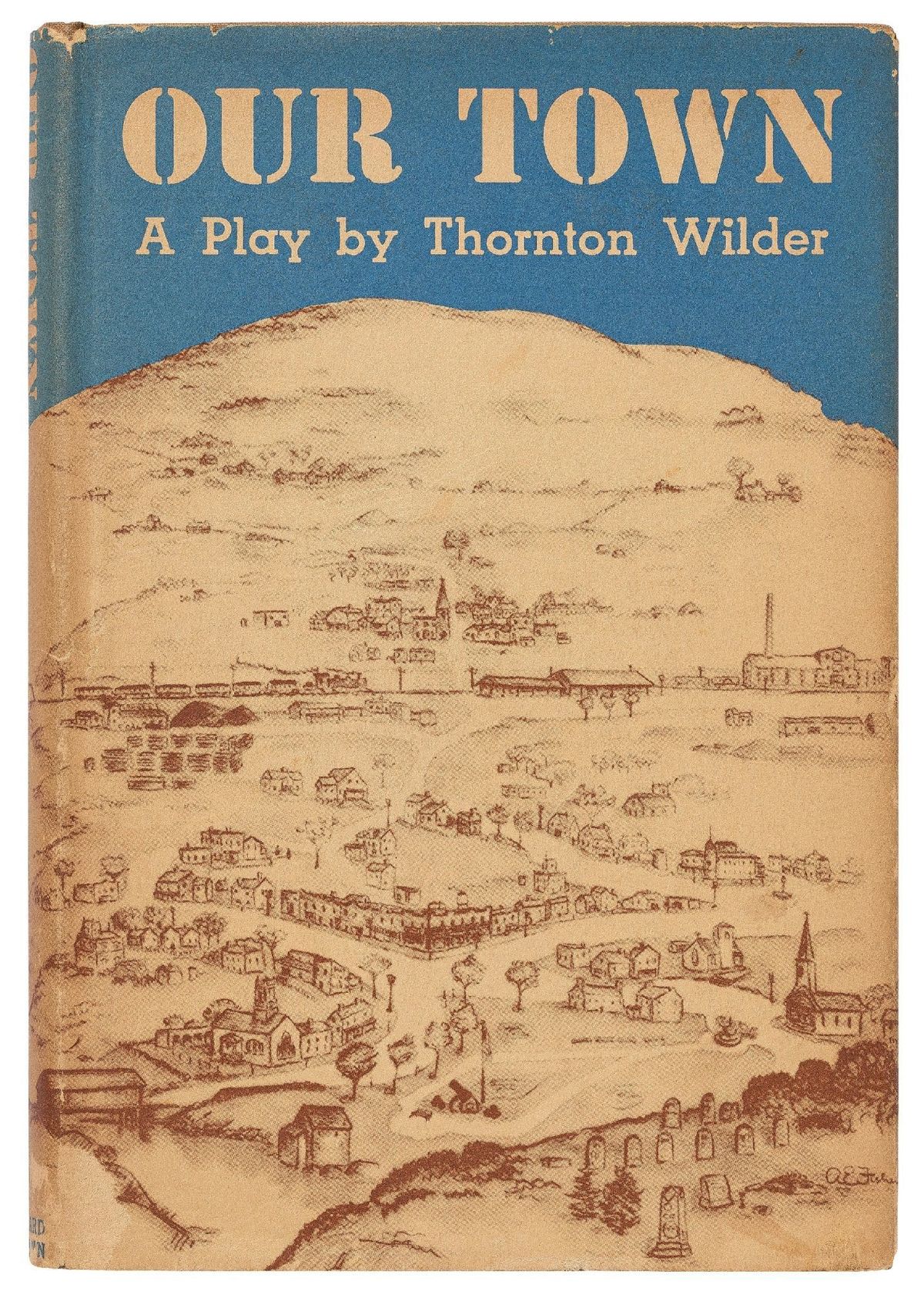

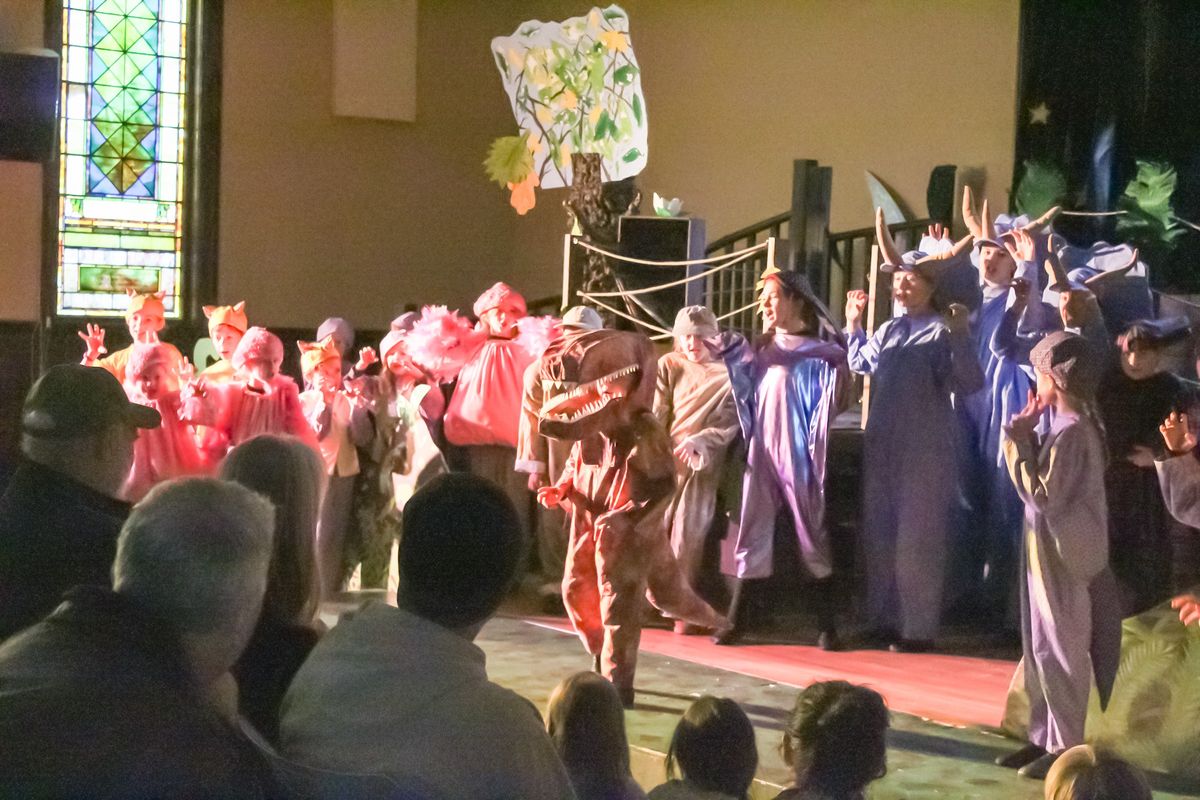
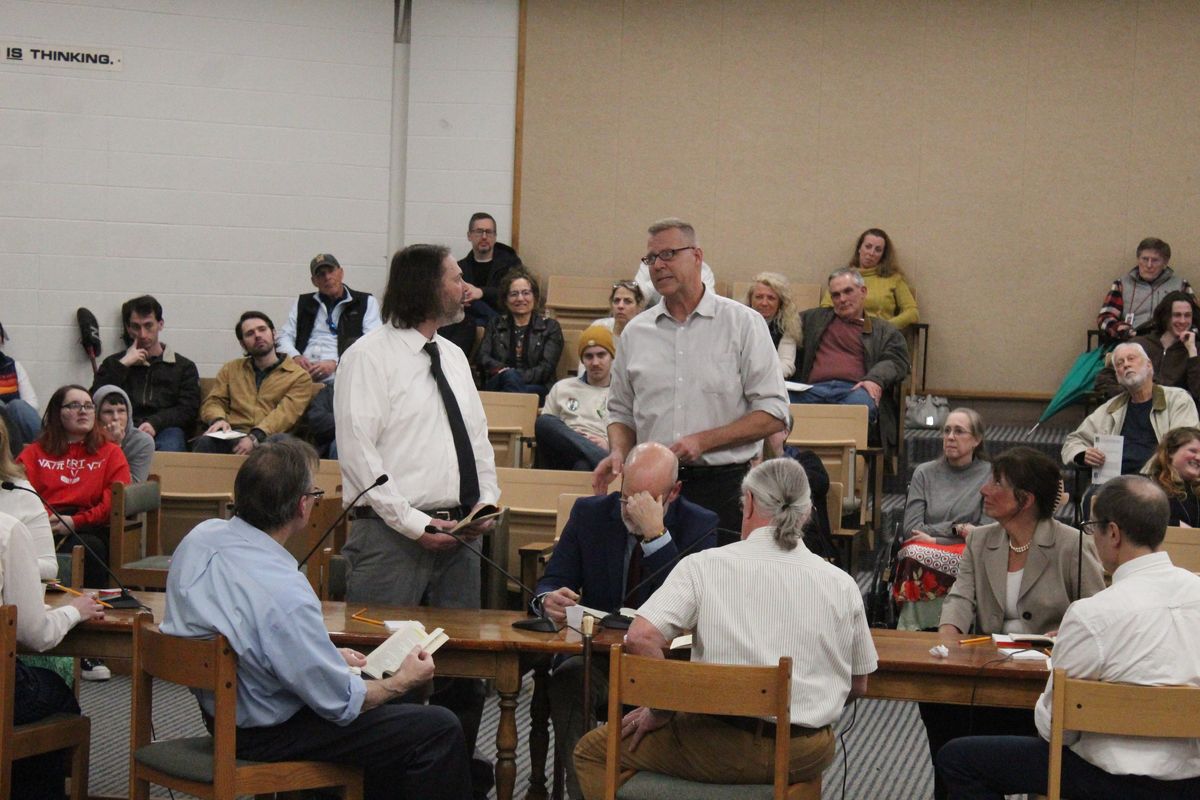
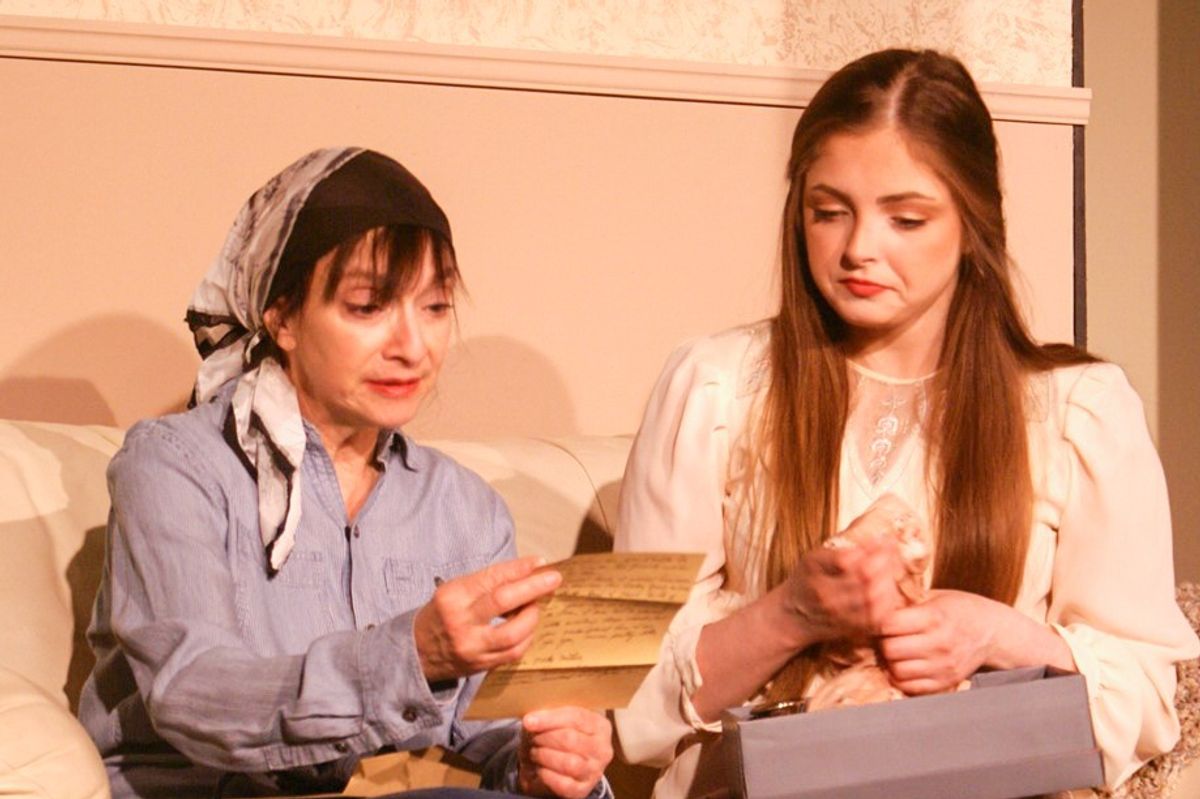


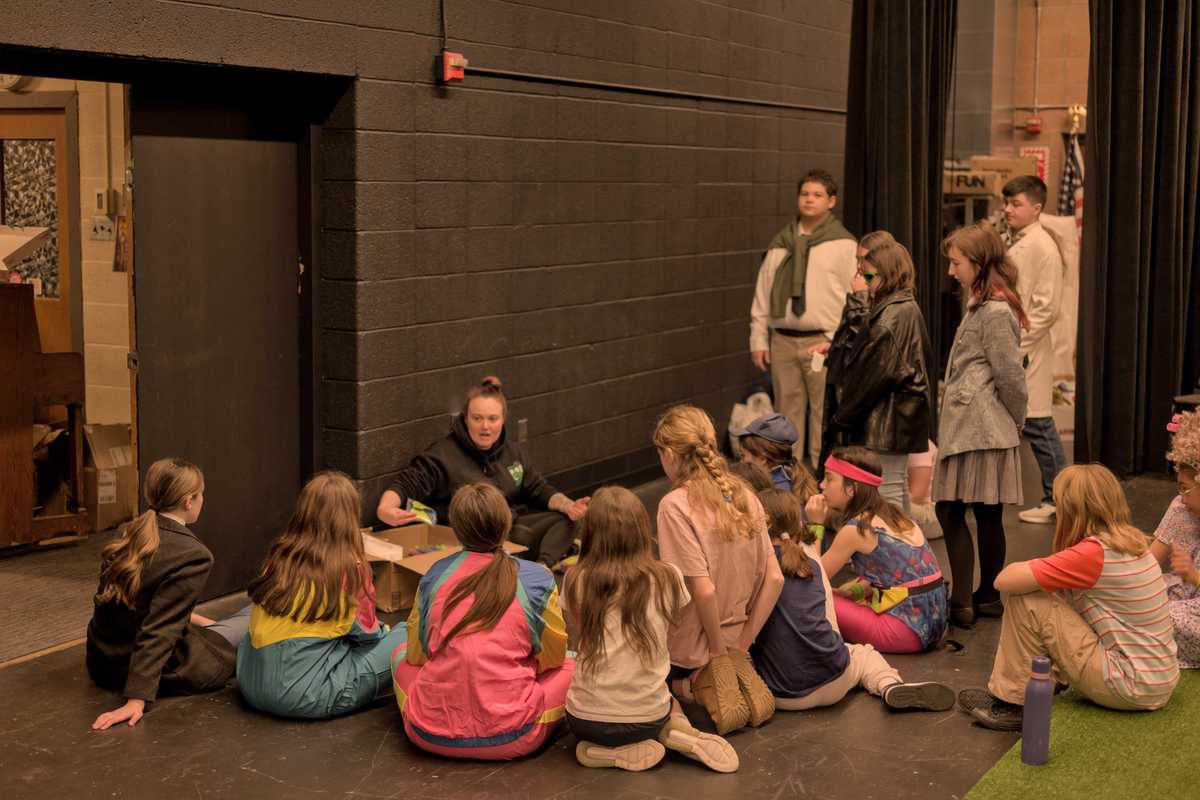


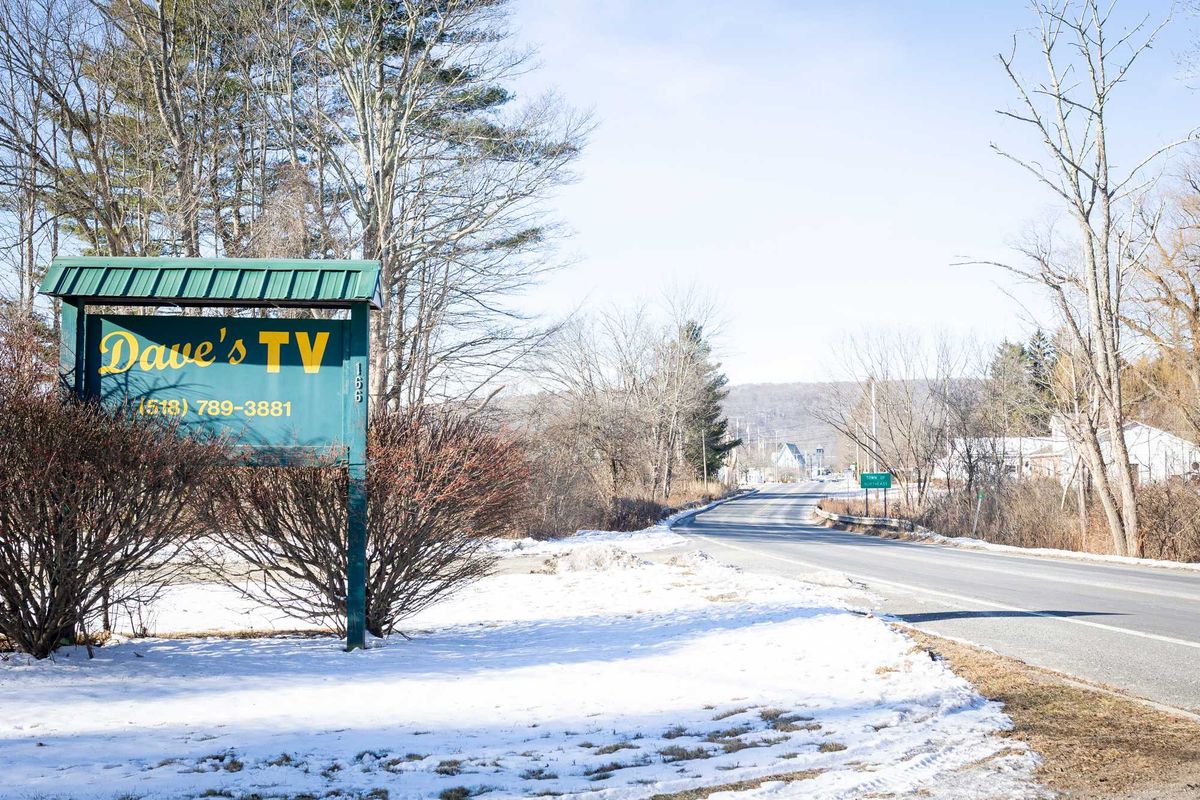







Supervisor Walsh defends role in Flock surveillance contract
Nathan Miller
A standing-room-only crowd listens as Supervisor Brian Walsh reads a statement addressing controversy over an unauthorized contract with Atlanta-based Flock Safety at the Feb. 19 Pine Plains Town Board meeting. Walsh said he did not sign the contract and believed Flock was providing a demonstration of camera hardware at no cost to the town.
PINE PLAINS — More than 50 residents packed Town Hall on Thursday, Feb. 19, as Town Supervisor Brian Walsh sought to address continuing controversy over a proposed license plate reader surveillance system.
At issue is a February 2025 contract with Atlanta-based surveillance company Flock Safety. Residents questioned when the agreement was signed, who authorized it, and whether it was reviewed by the Town Board or Town Attorney Warren Replansky, as required under town procurement procedures.
Walsh addressed the matter about 15 minutes into the meeting, following a hearing on an unrelated local law. Before opening public comment, he read a prepared statement, asserting once again that he had no knowledge of a contract with Flock Safety and addressed specific comments from a phone call he held with company officials that were recently revealed in a report by The New Pine Plains Herald.
The contract in question came to light two weeks ago on Feb. 9 during an emergency meeting of the Pine Plains Town Board following the discovery of markers for surveillance cameras across town. The New Pine Plains Herald reported Sgt. Michael Belliveau, who resigned from the town's police force last year, signed the $80,000 contract with Flock on Feb. 25, 2025.
Under New York State Law, town funds can only be spent with Town Board approval. In Pine Plains, police department equipment is jointly owned with the town government.
"At no time was it ever stated to me that a contract had been executed," Walsh said. "I contacted Flock, instructed them to halt all activities, and stated I had no idea that mark-outs were being performed."
Walsh said Flock Safety representatives had approached him and the town's police department about a nine camera system in February 2025, but Walsh told the company at that time the town could not afford such a system and declined the cameras. Walsh said company officials then offered a limited trial including four cameras at no cost to the town, at which point Walsh agreed. He said he had no contact with the company between July 2025 and February 2026 when markings appeared across Pine Plains for what appeared to be permanent camera installations.
Reports in the New Pine Plains Herald revealed Walsh told Flock Safety officials during a phone call on Feb. 5 that camera installations were "going to get done." At Thursday’s meeting, he addressed the remark in his prepared statement, saying he was referring to the county.
"If the county wanted to place cameras in the Town of Pine Plains it would be done, but the town is not."
Walsh and Town Board members declined to answer questions regarding Flock Safety at the board meeting.
The statement did not immediately put residents' minds at ease. Matthew Lebaron, of Pine Plains, voiced concern over procedure, asking questions about town and police department officials' capacity to pursue demonstrations–or enter into contracts–without first consulting the town board.
"If equipment was installed, marked, tested or contracted without a formal public vote or proper procurement process, that raises serious questions about compliance with town law and fiduciary responsibilities," Lebaron said. "My request is simple — any agreements, any communications made to the public about these agreements, all be given to us with good warning over multiple communication streams."
Keary Hanan voiced further concerns about procedures, asking during public comment whether the town's counsel, Warren Replansky, had read or provided advice on the contract. Hanan expressed broken trust with the town's officials, asking "how does this town board plan on restoring the trust of this community after this egregious breach of honesty and trust with its constituents?"
Michael Cooper, who serves with the Pine Plains Volunteer Fire Department alongside Walsh, offered a defense of the town's supervisor, saying he believed Walsh's comments were being misunderstood.
"I have personally known Brian for 10 years since joining the fire company," Cooper said. "Knowing Brian and how he communicates, I believe his words are being misrepresented, and I would encourage anyone who has problems with what he has to say to examine what he has in fact done."
Cooper said he does not support surveillance systems in Pine Plains, citing abuses of surveillance technology by bad actors, but praised the Town Board and Supervisor Walsh for swift action regarding the controversy.
"I hope the Town Board and community can move past this and continue to maintain Pine Plains as a wonderful place to live," Cooper said.
Pine Plains resident Alice Nuccio objected to what she described as the politicization of the issue, referencing a comment Walsh made to Flock Safety officials in which he said, “I think we’re a decent blue area right now, unfortunately.”
"This is not a red or a blue issue," Nuccio said. "This is a humanitarian issue. We need to stop dividing everyone between this and that and really try to do the best for the town."